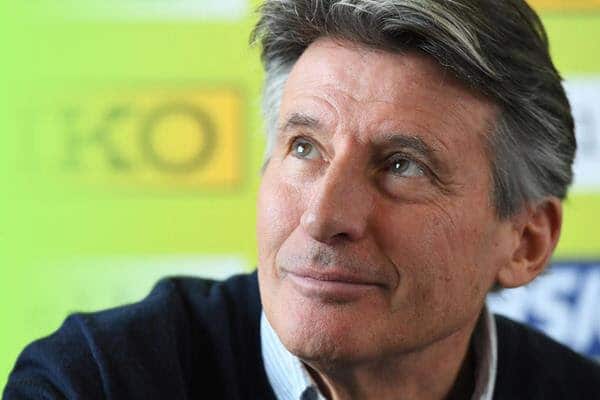By David Saunders | UPDATED: 11:28, 27 March 2020
I am comforted in these intolerable circumstances, which are affecting every continent on the planet, of the creativity and resilience of people. From my teams in Monaco who are completing their second week in isolation but still running the business, and our Member Federations in 214 countries who are trying, day by day and hour by hour, to figure out how to keep everything afloat, to our amazing athletes who are doing whatever they can to train in bedrooms and backyards while also finding time to produce inspirational and motivational videos and tutorials for adults and children who, like them are confined to their homes across the world. I have never been prouder of them.
The spirit of human optimism and endeavour stands the test of time. When we get through this, and we will, we will be braver and more innovative. We will be more collaborative and resilient. We will be stronger and more tolerant. We will be more global, not less.
© Dan Vernon
In sport we have a unique opportunity not to tip toe around things and tweak at the edges. We have the chance to think bigger, to rip up the blueprints and banish the ‘that’s the way we’ve always done it’ mentality. Ironically, I believe social distancing will actually bring us closer together as a community and sport can sit right at the centre.
The situation the world finds itself in today is a huge wake up call for all of us – as human beings, as businesses and as sport. We should capitalise on this and work out new ways of delivering events, create and plan new events that embrace the many as well as the few. We can use this time to innovate and extend our sport across the year.
Rather than just focusing on one-day meetings and one-day road races at one end of the spectrum and 10-day extravaganzas at the other end, we should look at weekend festivals of running, jumping and throwing that take advantage of the Southern and Northern Hemisphere seasons. We should work with governments to re-establish sport in schools, rebuild club structures, incentivise people to exercise and get fit (I rather fancy more people are exercising this week – doing 15-minute exercise routines in their homes or going out for a daily walk – than they have probably done in the last month). This should and could be the new normal. We don’t have to do things the same way.
The announcement earlier this week by the Japanese Government and the IOC that the Tokyo 2020 Olympic Games will be postponed to 2021 was welcomed. It is what athletes want and we believe this decision will give all athletes, technical officials and volunteers some respite and certainty in these unprecedented and uncertain times. The focus of us all must be on the health and wellbeing of ourselves, our families and our communities. And hard as this is for us in sport to say, sometimes sport needs to take a back seat.
We don’t yet know the date for the Games next year and I am not going to speculate on the decision the IOC and the Japanese Government will make. Once they have made it, we will look at what, if any, impact that decision has on our World Athletics Championships Oregon 21.
I know everyone would like answers to these two questions now, but we all need time to review and discuss options. All major events rely on a complex and finely entwined group of stakeholders. So let’s take this time now, when we are not rushing from event to event, to really look at the options and make the right decisions.
And this is what we are doing at World Athletics. We may be sitting in isolation in our individual homes around the world but we are all focused on four priorities right now:
-
Getting our athletes back into competition as soon as possible, once it is safe to do so. We will continue to do whatever we can to preserve and create an outdoor season of one-day meetings in 2020, starting and ending later than usual, so athletes, when they are able and it is safe, will have access to competitions in every region.
Diamond League events have been postponed up until June at this stage, as have Continental Tour Gold meetings, but we are mindful that our athletes need to compete at some point this year so they can benchmark their performances and adjust their training accordingly for an Olympic Games in 2021.
We have a network of fantastic meeting directors, cities, governments and organising committees across our World Championship and Continental Tour events to the Diamond League, marathons and road events who are willing to be flexible and work with us to do this. We have amazing partners who are working with us on schedules and opportunities and we have 214 determined federations who are exploring national and local opportunities. My immense thanks go out to all of them.
-
Expedite our current review of the Olympic qualification system and release any changes to the process as soon as possible so athletes know where they stand. Last week all sports agreed to the IOC’s proposal that all athletes currently qualified for the Tokyo 2020 Olympic Games will remain qualified for next year’s event. In athletics the primary qualification avenue is by meeting the entry standards set out in March 2019.
Once those places are allocated, the remaining athletes are drawn from the World Ranking list. As of today, all athletes who have met the entry standards for their event will remain qualified for the Tokyo Olympic Games in 2021. This is approximately 50% of the places.
What is important now is that we develop a clear and fair process for the remaining athletes to qualify, given many events have been postponed. We will work with our Athletes’ Commission, our Council and the IOC to do this.
We are also looking at how we can preserve an outdoor competition season this year with a series of one-day meetings on each continent that may begin as late as August and run to early October, so our athletes can get back in to competition as quickly as possible when it is safe to do so.
-
Reorganising the global calendar of events, not just for the next two years which will see some major disruptions, but for the long term. We are committed to working with all sports to sort out the sporting calendar in 2021 and 2022 and this will take some time and compromises all round.
We started a review of our own sport’s global calendar in February, bringing together a team from different aspects of our sport and from different parts of the world to review the range of events that happen every year on a national, regional and global level. We are putting renewed effort and time into this.
We are also looking to expand our one-day meetings and deliver high quality events in all parts of the world so our athletes do not have to travel across the world to compete and earn a living but can do so on their own continents and in their own countries. This is good for athletes, their families and friends and the legions of fans who follow our sport.
-
And we continue to develop our strategy to grow athletics. We have teams who are planning a new kids athletics programme; new events and competition formats, new partnerships to help get the world moving, new collaborations around sustainability, air quality and health and the use of new technology to highlight the amazing talents of our athletes, their stories and their triumphs and take them into the homes of millions of fans around the world.
The priority for all of us right now is to contain the pandemic, stay healthy and stay home. But where we can continue to drive our sport forward, we must, and again my thanks go to the World Athletics team, our Member Federations, our athletes and all our partners for making time to do this.
The world will not be the same after this pandemic. It will be different and that could be a good thing. Going back to core human values, back to basics of what is important, redefining our purpose, is something we can all do on a human, business and sporting scale.
We have heard a lot in the past week from governments, health care professionals, Prime Ministers and Presidents about social distancing and we are all practicing it. But as I said at the beginning, although we may be separated physically during this period, my instinct is that ultimately this will draw us closer together, not further apart.

